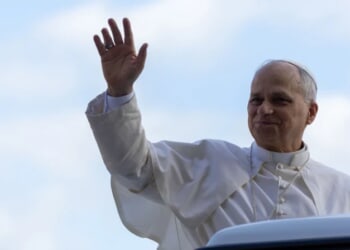In July, President Trump signed the GENIUS Act, which set forth a foundation for the issuance of a type of cryptocurrency known as stablecoin. Principal stated objectives are to assure the status of the U.S. dollar as a reserve currency, strengthen national security, and assure the U.S. leadership in digital currencies. The Act permits subsidiaries of authorized institutions, e.g. Wall Street banks but potentially others such as major retailers, to issue a digital currency backed by short-term U.S. treasuries or cash. Some major financial institutions have looked at collaborating to issue a joint stablecoin. Some financial press has enthusiastically endorsed digital currencies as a new asset class, moving toward the mainstream.
History records financial products that grew too fast and were not well-enough understood.
Increasing the demand for U.S. treasuries should strengthen the dollar, which comprises 58 percent of international currency reserves. This is a commanding lead, with the Euro in second place at 20 percent, although the dollar peaked out at 72 percent nearly 25 years ago. There is no doubt that the BRICS nations and some of the Global South would like an alternative to the dollar, as this would diminish U.S. standing; feed their resentments of the West; reduce their potential exposure to being sanctioned on the Society for Worldwide Interbank Telecommunications (SWIFT); and allow them to develop an alternative payment system for use among themselves.
As far as national security is concerned, a major and abrupt movement out of dollar assets by China, for example, would be destabilizing, complicate treasury auctions of U.S. securities, increase interest rates, and damage the U.S. economy. Transaction costs would be significant, but not nearly as much as the carnage of a major war. However, the existence of stablecoin does not reduce the risk of Chinese or other investors selling it to damage the dollar.
While mainland China is cautious and does not presently allow cryptocurrency trading, Hong Kong wishes access to the nearly $4 trillion crypto market. It has recently passed legislation allowing licensed firms to issue a cryptocurrency as an experiment that could lead to a yuan-backed digital currency.
Technical benefits of stablecoin would be reduced transaction costs, and instantaneous settlement that eliminates counterparty risk. Depending on the transaction, presently settlement can range from instantaneous, to several days for the Automated Clearing House (ACH) to move money domestically and for SWIFT for global money transfers. A financial benefit to Wall Street would be earning interest income on U.S. treasuries without paying the cryptocurrency holders anything, however future competition could cause issuers to pay interest.
The White House announcement teems with ebullience, and the Genius Act sounds like an act of, well, genius — however there are issues and risks to ponder and explain. First, who is the backer of last resort, like the Federal Reserve supports the dollar and the Department of the Treasury guaranteed the U.S. banking system when the meltdown of September 2008? A related question is what happens if there is an abrupt interest rate spike and the value of the collateral fall — will the holders or issuers have to make up the loss? Further, what are the capital requirements for this financial product that would support intervention?
The White House announcement refers to strict compliance standards, anti-money laundering safeguards, monthly reporting by issuers and annual audits for them. However, the San Francisco Federal Reserve had performed periodic audits on Silicon Valley Bank, a regional bank with over $200 billion of assets that collapsed in early 2023, the second largest bank failure in U.S. history.
Further, Freddie Mac and Fannie Mae were regularly audited, yet before the crash of 2008, too much capital flowed into the mortgage industry, with some subprime underlying credits and mortgage terms and conditions not well understood. In spite of sophisticated financial models and predictive algorithms by well-credentialed analysts, the U.S. had the worst financial disaster since the Great Depression. The large capital migration into the mortgage industry was dangerous then, and a similar exit from “sticky” bank deposits into a “hot” digital currency could threaten the banking system as an unintended consequence.
In a recent research paper, the Bank for International Settlements (BIS) recognizes the transformative value of digitization for payments and securities. However, it advises that this will not be the future backbone of the world monetary system because of the trust factor — trust in money, central banks, and certain test factors that it cites.
History records financial products that grew too fast and were not well-enough understood. When they blew up, they took a lot of “smart” people with them. With the GENIUS Act, there will certainly be potential winners and losers, as there often are with any legislation. The winners will be the issuing firms, trade and investment transactors who reduce transaction costs, and potentially the status of the U.S. in global financial markets as an innovator and leader of the digital revolution — if stable coin is successful. The losers could be China and others wanting to reduce the role of the dollar, as well as the banking system which would end up with federally uninsured deposits that could behave as “hot money.”
The spot price of gold over $4,000 per ounce says that investors already have plenty to worry about: a slowing economy, inflation, the effects of tariffs, geopolitical fears, a weakening dollar, and event risk. Introducing a digital currency touted as a monumental development only adds to the uncertainty, which many (but not all) investors abhor.
Cynics may well say that uncollateralized cryptocurrencies have been cited for years by central banks as a haven for drug trafficking, terrorism, and money laundering. Facebook’s cryptocurrency known as Libra launched in 2019 turned out to be a colossal disaster — it too, was to be similarly supported with high quality collateral, but it was vigorously opposed by regulators in the U.S. and Europe.
Waggish observers may also say that the “GENIUS” moniker is reminiscent of the 1980’s concept of the Master of the Universe — the young investment banker who, believing his financial acumen to be awesome and infallible, thinks he can see way beyond the horizon, as in the film Wall Street with Michael Douglas as Gordon Gecko — who immortalized the expression, “Greed is good.” As the implementation of stablecoin unfolds, we will get to see whether it is greed or good.
Frank Schell is a business strategy consultant and former senior vice president of the First National Bank of Chicago. He was a Lecturer at the Harris School of Public Policy, University of Chicago and is a contributor of opinion pieces to various journals.
READ MORE from Frank Schell
Facebook’s Cryptofantasy Is a Cryptosetback










![Florida Officer Shot Twice in the Face During Service Call; Suspect Killed [WATCH]](https://www.right2024.com/wp-content/uploads/2025/12/Inmate-Escapes-Atlanta-Hospital-After-Suicide-Attempt-Steals-SUV-Handgun-350x250.jpg)





